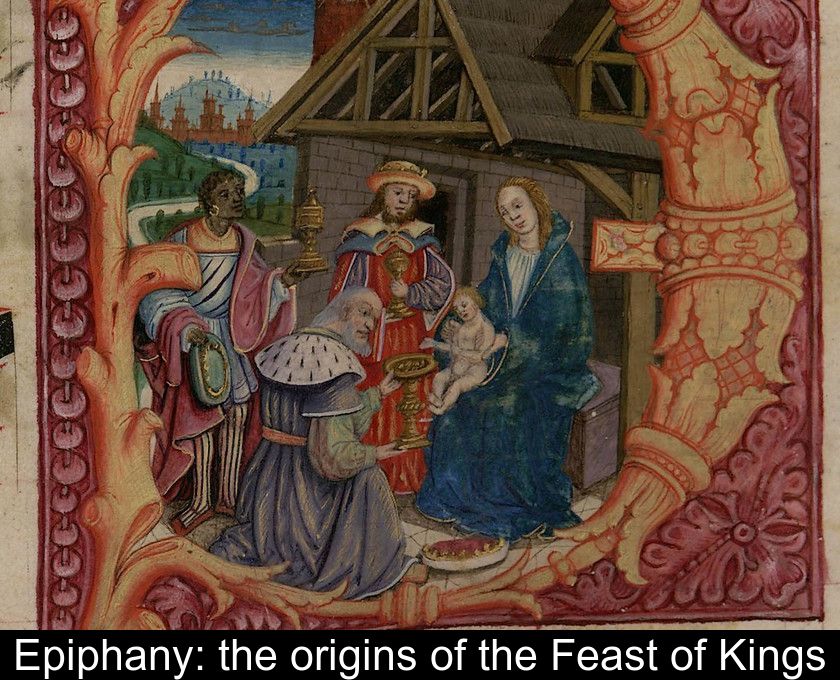Epiphany: The Origins Of The Feast Of Kings
Epiphany, which is celebrated on January 6th in the Christian calendar, is the day when we 'pull the kings' by sharing the traditional 'galette des rois' with our families. This widely followed custom celebrates, in the Catholic tradition, the presentation of the Baby Jesus to the three Wise Men.
What is the Epiphany?
The Epiphany is a Christian holiday whose name means 'manifestation' or 'appearance'.
Celebrated on January 6, it commemorates the presentation of Jesus to the three Wise Men: Balthazar, Melchior and Gaspard.
This feast, which has a different symbolic meaning depending on the denomination, is moreover associated with the tradition of 'pulling out the kings'.
What is the symbolic meaning of the Epiphany?
For the Roman Catholic Church, Epiphany celebrates the visit of the Magi who came to bring gifts to the Christ Child.
In some countries, the liturgical celebration of this feast is postponed to the Sunday following January 6 to allow people to attend Mass.
In France, this feast is thus celebrated the second Sunday after Christmas.
In the Orthodox Church, the feast commemorates the baptism of Christ in the Jordan and the manifestation of the Divine Trinity (which is the etymological meaning of the word 'epiphany').
The feast, also called Theophany ('divine manifestation'), is prepared by a strict Fasting on January 5.
Finally, for the Armenian Apostolic Church, January 6 is one of the most important feasts because it celebrates the Nativity, according to ancient Christian usage and the Justinian calendar.
What is the origin of this festival?
During the first four centuries of Christian history, the Church used to celebrate on January 6 all manifestations of God on earth: the Nativity (i.e., the present-day feast of Christmas), the Adoration of the Magi, the Baptism of Christ, and the wedding feast at Cana (where the miraculous transformation of water into wine was accomplished).
These different biblical episodes were then commemorated by different feasts: the date of January 6 was chosen by the Catholic Church to celebrate the Adoration of the Magi and by the Orthodox Church to commemorate the Baptism of Christ.
Only the Christians of Armenia have kept a unique feast and celebrate Christmas on January 6th.
Why do we draw kings?
For Catholics, Epiphany celebrates the arrival of the Kings of the Magi who came to worship the Christ Child, namely Melchior, Gaspar and Balthazar.
According to the Bible, these three kings from the East followed the shepherd's star to Bethlehem in Galilee. The first of them offered gold, a symbol of royalty, the second myrrh, a symbol heralding Jesus' redemptive suffering, and the last incense, a symbol of divinity.
In France, it is traditional to 'pull the kings', that is, to share a galette to designate the king of the day. The guest who finds the bean (real or replaced by a figurine) hidden in the galette des rois is crowned.
The tradition of the Galette des rois is said to date back, before the Christian era, to the Saturnalia of ancient Rome.
What are the traditions of Epiphany in France?
In France, the Galette des rois is eaten on the occasion of Epiphany since the 14th century.
It is customary to divide the galette into as many portions as there are guests, plus a portion called the 'poor man's portion'. If there are children among the guests, the youngest must stand under the table and decide at random who gets each slice.
A modern custom is that the person crowned king or queen offers the next galette.
In the south of France, the king's cake is not the frangipane galette but the couronne des Rois, a crown-shaped Brioche topped with candied fruit.







